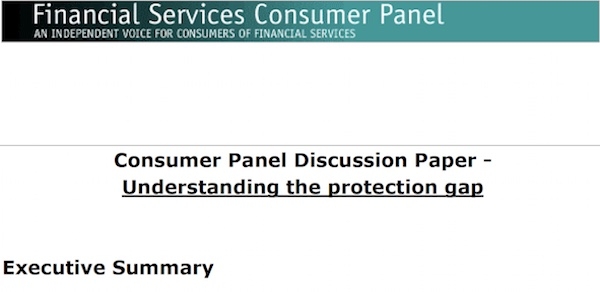
Consumer Panel urges radical overhaul for protection products

Protection products are too complicated and need a radical overhaul to improve consumer understanding and take up, the Financial Services Consumer Panel has urged.
The statutory body, which represents the interests of consumers, says that protection products fail to meet the needs of a “modern workforce.”
In a discussion paper, published this week, the panel called on the insurance industry, regulators and other stakeholders to tackle the ‘protection gap’ which has resulted in two out of three consumers (65%) having no protection insurance “at all” and over seven out of 10 (71%) having no life insurance.
Panel chair Sue Lewis said: “Protection products have not kept pace with the needs of today’s workforce. People now are more likely to be self-employed or have insecure employment, with volatile incomes.
“Our research shows that people want value for money products that suit their lifestyles, and that they understand. The industry needs to respond to this, rather than just selling the same products as it did 30 years ago.
“We hope the industry, regulators, and other stakeholders will join in the debate about how this market can be improved for consumers. More of the same is not an option.”
The panel said in its report: “The policy focus has been on saving as a means of building resilience, rather than encouraging people to think about
how they manage the risks they face in life.”
Protection products have failed to keep up with changes such as auto enrolment, Pension Freedoms and Universal Credit.
The panel says the the ‘gap’ leaves many consumers vulnerable to the financial consequences of long-term illness or premature death.
Consumers were found to have little incentive to actively seek protection products and many products were “clunky”, out of date and behind the times.
In early 2018, the panel commissioned researchers Bdifferent to undertake qualitative research on the protection market.
Based on this research, the panel has published a discussion paper and made a number of recommendations including whether critical illness insurance can be
extended to cover musculoskeletal injuries and mental health and remain affordable and whether the FCA should convene a working group to re-examine the proposals in the Sergeant Review of Simple Financial Products, concentrating on a hybrid of income protection and critical illness.
The working group should also look at the pros and cons of indemnity commission and how this affects “market practice,” said the panel.
